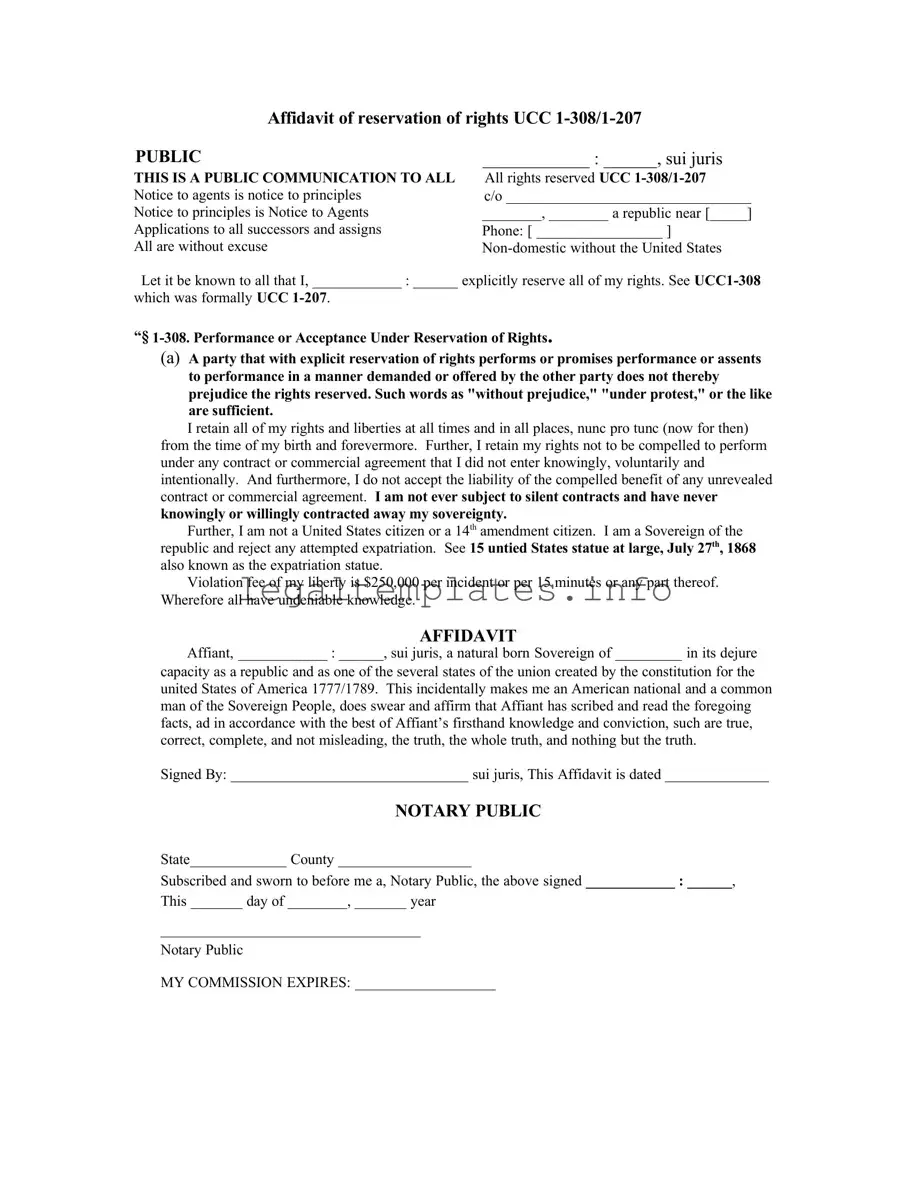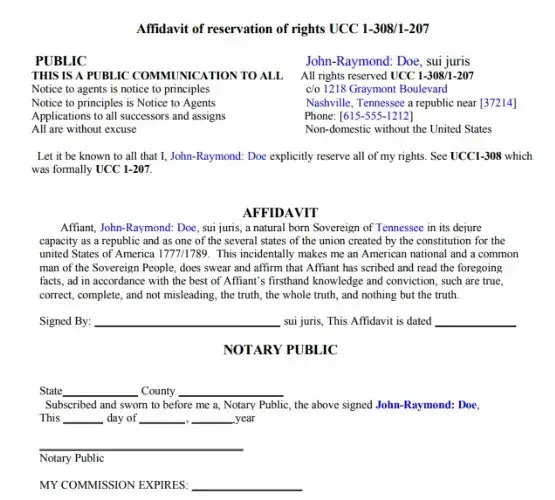Fill a Valid Ucc 1 308 Form
The UCC 1-308 form, also known as the "Affidavit of Reservation of Rights," is a declaration used to explicitly reserve an individual's rights. It is invoked to assure that a person's participation or performance under a specific agreement does not lead to the forfeiture of any rights, under the principle that one can perform under protest or with reservation, without losing those rights. For anyone seeking to safeguard their rights in legal or contractual situations, understanding and properly filling out this form is crucial.
Ready to protect your rights? Click the button below to get started with the UCC 1-308 form.
Access Ucc 1 308 Online

Fill a Valid Ucc 1 308 Form
Access Ucc 1 308 Online

Access Ucc 1 308 Online
or
Click for PDF Form
This form won’t take long
Edit, save, and complete Ucc 1 308 online.
